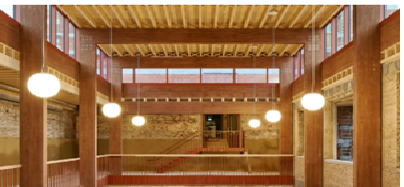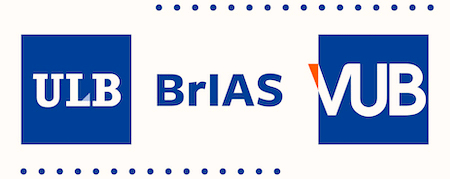Research at ULB and VUB
Supervisors at ULB and VUB
Prior to submitting your application, you must secure confirmation of capacity (supervision and research infrastruction) to support your project from both a supervisor and a co-supervisor based in the Brussels-Capital Region with whom you intend to apply.
To identify a supervisor/research centre, please consult the following links:
- Find supervisors in ULB ULB Research Inventory or search Université libre de Bruxelles in the CIVIS MSCA Supervisors data base and/or contact IRIS@ulb.be
- For VUB researchers consult the VUB Research Portal, the VUB MSCA-Postdoctoral Fellowship Repository and/or contact IRIS@vub.be
We recommend that you include a CV, short summary of your research proposal and specific requirements for research infrastructure when contacting the supervisor. Please be aware that this is the summer holiday period in Belgium and replies from researchers may take a little longer.
Home supervisor:
- Academic staff member at ULB or at VUB
- Supervision expectations: Bi-weekly meetings
Co-supervisor:
- Researcher from a different discipline qualified to supervise postdocs
- Can be from the same or different institution as the home supervisor (ULB or VUB) or a third party/intersectoral partner in the Brussels Capital Region
- Supervision expectations: Quarterly meetings
IRIS fellow:
- Integrated into both research entities
- Tripartite supervision meetings min 2× year
Research at ULB
ULB consists of 12 faculties with more than 39 000 students at the undergraduate, graduate and PhD level. With a research budget exceeding 210 million annually, ULB is committed to be a key focal point into the major world’s issues requiring a transdisciplinary approach, with a view to excellence and sustainable development. With its long-held tradition of excellence, more than 200 research units, 11 interdisciplinary institutes, over 2,000 PhD candidates and more than 3,600 researchers and members of academic staff in all fields, ULB is a force to reckon with in building a foothold for tomorrow’s society.
Located at the heart of Europe, ULB is an outward looking university and its international attractiveness is illustrated by the fact that 15% of professors, 50% of post-doctoral researchers, 45% of doctoral researchers and more than 30% of BA and MA students are coming from abroad. Research collaboration with universities worldwide has been stepped up through a strong involvement of ULB in international research & education projects (e.g. joint Master and doctoral degrees, Marie Skłodowska -Curie Innovative Training Networks and Erasmus Mundus).
A number of ULB scientists have gained recognition from international panels and have won an array of awards attesting the excellence of research at ULB. These include four scientific Nobel Prizes, the most recent being the Nobel Prize in Physics. ULB scientists have also been awarded 24 Francqui Prizes (out of 82), the highest award for sciences in Belgium, and 21 five-yearly FNRS prizes (out of 42 across all French speaking Belgian universities). ULB is also very active in the management of the International Solvay Institutes, famous worldwide for the organisation of the Solvay conferences.
The recognition of ULB scientists’ excellence is also highlighted by the 57 European Research Council (ERC) grants awarded to its researchers in various research fields. ULB is actively participating to other calls of the European Commission with various projects under the Horizon 2020 Programme and its successor Horizon Europe.
IRIS falls within an institutional policy promoting international mobility. The ULB welcomes researchers through other European/international funding funded by:
- European Commission : Marie Skłodowska-Curie Actions - ULB (ulb-europe@ulb.be)
- INNOVIRIS : ATTRACT
- FNRS : http://www.fnrs.be/index.php/financements/mandats/post-doctorants
Research at VUB
Vrije Universiteit Brussel (VUB) is a research-based, critically thinking, comprehensive and internationally oriented university. As an Urban Engaged University in Brussels, it strives to deliver an active, committed contribution to a better society. Therefore, we strive to provide quality research with a strong local base. By providing excellent research and education on a human scale, VUB aims to make an active and committed contribution to a better society.
VUB offers high-quality education to more than 21,000 students from 145 nationalities across four campuses: humanities, sciences & engineering, health, and photonics. We host over 130 research groups and over 620 professors working across 9 faculties. Research activities are supported by 9 core facilities and research infrastructures and together with the university hospital, VUB forms one of the largest knowledge centres in the capital of Europe. Consequently, VUB contributes to the Brussels-Capital Region, which has been recognized as an Innovation Leader, scoring high in the number of scientific co-publications.
VUB has a portfolio of 45 spin-offs, demonstrating our engagement with intersectoral working and knowledge transfer. The university is an enthusiastic participant in European projects and leads as the top Brussels-based organization for participation in Horizon 2020 and Horizon Europe projects: it was awarded 202 H2020 research projects, accounting for more than 100 million euros in European funding. In these projects, VUB collaborated with 1,985 partners from 79 countries and coordinated 28% of the projects. As of January 2025, VUB has secured 109 million euros for contributions to 175 Horizon Europe projects. Together with its partners, VUB was selected by the European Commission as one of the first pilot projects for developing a 'European University': the EUTOPIA alliance, comprising 10 European universities committed to transforming into an open, inclusive academy. Consult the Core Facility and Research Infrastructure pages for information about research infrastructure.
The VUB is committed to the principles of open, transparent and merit-based recruitment and first received the HRS4R quality label in 2011 and a renewal for the next three years was approved in 2024 for the period of 2024-2027.
ULB and VUB offer researchers:
- Interdisciplinary Research Environments. IRIS Research projects are interdisciplinary and cover a large variety of fields. You can benefit from our universities transdisciplinary approach, and our extensive community of researchers and PhD Candidates.
- High-quality, independent research. Being an international researcher at ULB and VUB means pursuing your research in full independence, guided by the universities' strong commitment to the principle of free inquiry. You will also benefit from an HR Excellence label in Research awarded to both institutions, diverse international environments and two universities with a strong social commitment.
- Global Network. As a researcher, you can benefit from our extensive partnerships with some of the best universities and research institutes in the world.
Joint ULB/VUB Centers

FARI - AI for the Common Good Institute is a non-profit university institute on AI, data and robotics focused on the Common Good. We are jointly initiated by two Brussels universities (VUB & ULB) - uniting interdisciplinary expertise across 10 research groups on AI, data, robotics, social sciences, ethics, and law.
We do research and build bridges with public administrations, industry, and citizens, promoting sustainable AI, data & robotics with a focus on urban and public priority domains such as health, mobility, sustainable robotics, climate and energy, participatory and inclusive society.
Website: Research & Innovation - Fari Institute

The Urban and Socio-Environmental Transformations (USET) Research Hub is a collaborative initiative between the Vrije Universiteit Brussel (VUB) and the Université libre de Bruxelles (ULB), focusing on urban studies, socio-environmental issues, sustainable finance, economic resilience and the interactions between tourism activities and territories.
Building upon a longstanding partnership between the two main Brussels-based universities, USET signifies the next phase of integration, enhancing the collective research, education, and outreach capacities of ULB-VUB in these domains. Located on the VUB-ULB USquare campus, within a landmark and recently renovated building, USET provides an environment for researchers from both universities to conduct research and collaborate on new projects and joint activities.
Situated across multiple floors, USET offers multifunctional spaces, including meeting and seminar rooms, dedicated offices for staff, flexible workspaces for visiting researchers, a café, and a large reception area. This setting facilitates interdisciplinary research collaborations, engagement with students from various graduate programs, and connections with stakeholders and society in Brussels and beyond.
Website and Research Units: USET Research Hub | Brussels Centre for Urban Studies

The OpenLab.brussels promotes participatory research as a fully-fledged research method within the universities. It values existing expertise dispersed throughout the institutions and stakeholders involved in this type of research. The OpenLab.brussels aims to promote knowledge sharing through organizing events (training, workshops, conferences, etc.), the supply of toolkits, and a documentation repository. The OpenLab.brussels aims to develop active networks within VUB and ULB, with the stakeholders, but also with other participatory research hubs, experts, researchers, and supporting staff working reflectively on a European scale under the aegis of CIVIS and Eutopia. The OpenLab.brussels offers a support service to foster mutual VUB-ULB (and, by extension, the members of the CIVIS-EUTOPIA networks) participatory research project proposals and their implementation. It makes available to the researchers its infrastructures based in USquare (meeting room, co-working spaces) and its expertise.In the longer term, the vision of OpenLab.brussels is to become an accelerator for participatory research projects with a interdisciplinary base, infrastructures, methods, and practices that are part of a participatory dynamic
Website: Mission | Openlab Brussels

The vision of the Brussels Institute for Advanced Studies is to create an environment which is an incubator of ideas, with no philosophical or political restrictions, where some of the very best researchers, coming from diverse fields, are given the opportunity of pursuing their research in an atmosphere of total freedom, collaboration, mutual emulation and cross-fertilisation.
This vision supports the longstanding traditions and aspirations of both the Université Libre de Bruxelles (ULB) and Vrije Universiteit Brussel (VUB) of breaking down the walls of ignorance and dogmatism through science, without taboos or prejudice.
Website: BRIAS - Vision